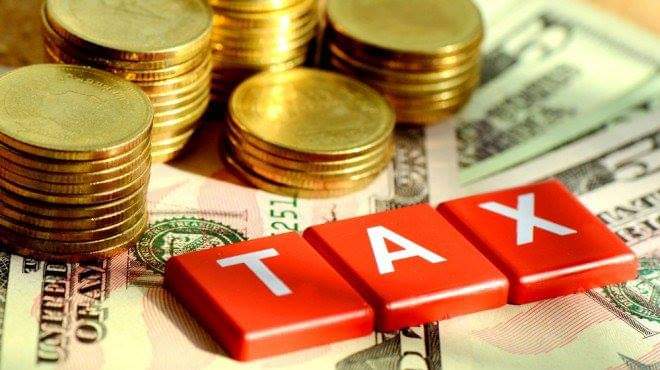Tax is a compulsory contribution to state revenue levied by the government on workers’ income and business profits, or added to the cost of some goods, services, and transactions. But for the sake of clarity, this piece will be focusing on tax as citizen’s obligation or contribution towards national development.
Nigeria like every other nation around the world needs revenue for the smooth running of governance and also to perform other civic operations. Although revenue can be gotten from various sources, one source that stands out the most in our contemporary time is revenue generated through taxation.
Every country has a particular agency or establishment saddled with the responsibility of tax administration aimed at delivering quality service to taxpayers in partnership with other stakeholders making taxation the pivot of national development. In Nigeria, the Federal Inland Revenue Service (FIRS) is the agency that oversees the timely collection of the various types of taxes which includes: the Company’s Income tax, Tertiary Education tax, Value Added tax, etc.
The FIRS after it’s rebirth in 2019 under the experienced leadership of its Executive Chairman, Muhammad Mamman Nami has become one agency of government working hard to fulfil it’s mandate and a major contributor to government coffers with its latest revenue generation of N10.1 trillion in the year 2022. The highest revenue ever collected in Nigeria’s history by a single agency of government, and of course the highest the Service has ever collected.
While the Federal Government of Nigeria is tagged with the responsibilities of providing security, welfare of citizens, promotion of political activities, provision and promotion of economic activities, provision of social amenities etc, citizens too have an obligation to fund these services through the payment of tax.Taxes paid by citizens is their obligation under the social contract where they contribute to the government to provide them with various services needed to better their lives.
Unfortunately some people do not see the need to pay taxes yet they want government to miraculously meet their needs by fulfilling its responsibilities. How can that be, where will the funds come from?
A nation with more tax payers who pay their tax as and at when due will naturally be ahead and more developed than those with less tax payers because it is through these taxes that government is able to undertake meaningful developmental projects such as constructions of roads and bridges, provision of medical facilities, building of schools and adequately equipping them; taxes are also used to fund many types of government programs that help the poor and less privileged in the society.
In Nigeria for example, the government at the center has embarked on series of milestone projects aided by revenue generated from taxes. Notable amongst these are the constructions of Loko – Oweto Bridge, Second Niger Bridge, Gombe-Kaltungo road, Abuja-Lokoja express way, Lagos-Ibadan dual carriage, Bonny-Bodo road and bridges, Sokoto-Tambuwal-Jega-Kontagora road, amongst others. It has also provided affordable medical care and cheap medical training for our doctors; built several Primary Health Care Centres across the country, built thousands of lecture halls, theatres and hostels in our tertiary education institutions and equipped them with the necessary infrastructure needed for effective learning.
Our tertiary institutions of learning is a major benefactor of tax collected through education tax. The Tertiary Education tax is 2.5% of the assessable profit of companies operating in Nigeria.
The education tax is a tax contribution made from profits of companies in Nigeria collected by the FIRS on behalf of the Tertiary Education Trust Fund (TEFUND) which in turn disburses it to the relevant public tertiary institution. Over the years, this has translated to the building and equipping of physical infrastructure, staff development and aided research. In light of this, TETFUND has disbursed over 2 trillion Naira to several tertiary institutions in Nigeria.
However, for more people to be encouraged in payment of taxes, government at all levels needs to be seen judiciously using the funds at its disposal to bring about development in any and all forms, thereby providing value for tax monies collected. It is one thing to pay taxes and it is another thing for the taxes to be used for the purpose for which it was collected.
This cannot be better said than in the manner Muhammad Nami puts it. While appealing to the three tiers of government, he advises them to continue to use the funds generated by the FIRS in critical sector of the economy so that they are able to give back value to tax payers as far as their money is concerned. He adds that global civilization is as a result of judicious use of taxes by government officials across the world.
Every one desires a good life, we crave for a better Nigeria where everything works. In truth, every citizen deserves it but without funds, the government no matter how willing it may be will be handicapped in living up to its responsibilities and making a significant change in the system.
Therefore, citizens must recognise that they are responsible for the building of their country’s civilisation through the taxes they pay.
Whether as a public office holder, a business owner or a simple patriotic citizen of Nigeria, we owe it as a duty to pay our taxes. Together we can build our nation and take it to greater heights through this little quota called tax.
By JANTIKU IJANADA is a media practitioner who resides in Abuja.











